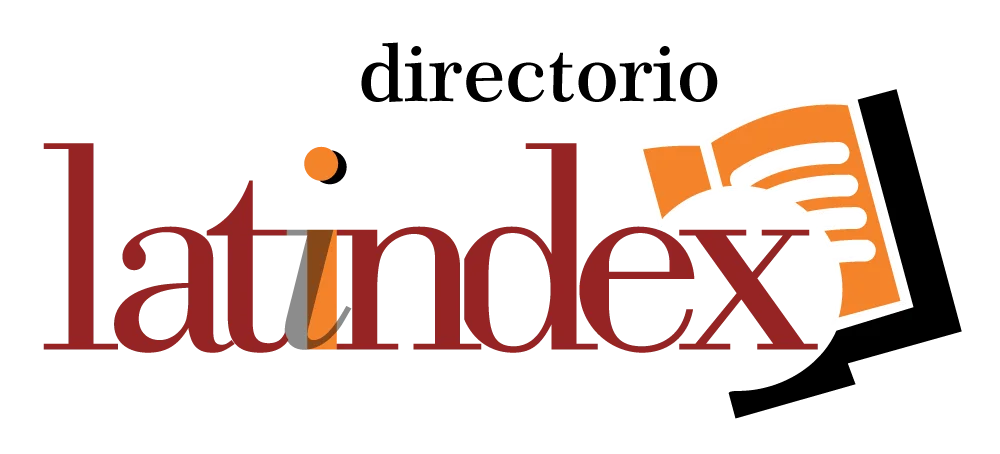Emotional education and learning outcomes in students with diverse cognitive profiles: a literature review
DOI:
https://doi.org/10.56294/neuro2025250Keywords:
Academic Performance, Emotional Intelligence, Education, Social SkillsAbstract
Introduction: academic performance in basic education is determined by a complex interaction of cognitive, pedagogical, social, and emotional factors. Contemporary literature highlights the crucial role of the emotional climate in the classroom and the need for pedagogical strategies that encourage active participation.
Objective: to systematize the available theoretical and empirical evidence on the influence of emotional education on the academic performance of basic education students, providing a comprehensive overview for researchers and educators.
Method: a search for information was conducted in the Scopus and ERIC databases. A search strategy was employed using a combination of terms and Boolean operators. Theoretical methods such as documentary analysis, historical-logical method, and analysis-synthesis were used.
Development: emotional education is conceptualized as a continuous educational process to enhance emotional competencies as an indispensable complement to cognitive development. Theoretical models highlight skills of perception, understanding, and emotional regulation. Empirical evidence shows that structured emotional education programs improve not only the classroom climate but also specific indicators of academic performance. Contextual factors significantly moderate the effectiveness of these interventions.
Conclusions: there is a bidirectional relationship between emotional education and academic performance, with emotional skills influencing cognitive learning processes. The effectiveness of interventions requires a systemic approach involving teachers, students, families, and educational psychology professionals. The integration of emotional education into curricula emerges as a fundamental strategy for improving both academic performance and the comprehensive development of students.
References
1. Naranjo BGM, Martínez Benítez JE, Barreno Freire SN, Haro Jácome OF. Factores asociados al rendimiento académico: Un estudio de caso. Rev EDUCARE - UPEL-IPB - Segunda Nueva Etapa 2.0. 2021;25(3):54-77. Available from: https://doi.org/10.46498/reduipb.v25i3.1509
2. Piaget J. The construction of reality in the child. Basic Books; 1954. Available from: https://doi.org/10.1037/11168-000
3. Ministerio de Educación. Plan Educactivo Sección 5: Socioemocional. Caja de herramientas para el desarrollo de la "evaluación diagnóstica": elementos conceptuales y recursos metodológicos. Ministerio de Educación de Ecuador; 2021.
4. Gabriel. Charles Sperman: Teoría del factor general de la inteligencia. Available from: https://enterapiaonline.com/charles-spearman/
5. Rodrigo. Teoría del Desarrollo Cognitivo de Piaget: Definición y etapas. Estudyando. Available from: https://estudyando.com/teoria-del-desarrollo-cognitivo-de-piagetdefinicion-y-etapas/
6. Valdes A. Etapas del desarrollo cognitivo Piaget. Universidad Marista de Guadalajara; 2014. Available from: https://www.researchgate.net/publication/327219515_Etapas_del_desarrollo_cognitivo_de_Piaget
7. Hattie J. Visible Learning for Teachers: Maximizing Impact on Learning. 1st ed. Routledge; 2012. Available from: https://doi.org/10.4324/9780203181522
8. Marzano RJ. A different kind of classroom: Teaching with dimensions of learning. Association for Supervision and Curriculum Development (ASCD); 1992.
9. Bisquerra Alzina R, Chao Rebolledo C. Educación emocional y bienestar: por una práctica científicamente fundamentada. Rev Int Educ Emocional Bienestar. 2021;1(1):9-29. Available from: https://doi.org/10.48102/rieeb.2021.1.1.4
10. Machado Pérez Y. Origen y evolución de la educación emocional. Alternancia - Rev Educ Investig. 2022;4(6):35-47. Available from: https://doi.org/10.33996/alternancia.v4i6.819
11. Mayer JD, Salovey P. What is emotional intelligence? In: Salovey P, Sluyter D, editors. Emotional development and emotional intelligence: Educational implications. Basic Books; 1997. p. 3-31.
12. Fernández Berrocal P, Cabello R. La inteligencia emocional como fundamento de la educación emocional. Rev Int Educ Emocional Bienestar. 2020;1(1):31-46. Available from: https://ri.ibero.mx/bitstream/handle/ibero/6043/RiEEB_01_01_31.pdf
13. Bar-On R. The Bar-On model of emotional-social intelligence (ESI). Psicothema. 2006;18 Suppl:13-25. Available from: http://www.psicothema.com/pdf/3271.pdf
14. Patall EA, Cooper H, Robinson JC. Parental involvement in homework: A research synthesis. Rev Educ Res. 2008;78(4):1039-101. Available from: https://doi.org/10.3102/0034654308325185
15. Wang MT, Sheikh-Khalil S. Does parental involvement matter for student achievement and mental health in high school? Child Dev. 2014;85(2):610-25. Available from: https://doi.org/10.1111/cdev.12153
16. Troost AA, van Ham M, Manley DJ. Neighbourhood effects on educational attainment. What matters more: Exposure to poverty or exposure to affluence? PLoS One. 2023;18(3):e0281928. Available from: https://doi.org/10.1371/journal.pone.0281928
17. Nieuwenhuis J, Hooimeijer P. The association between neighbourhoods and educational achievement, a systematic review and meta-analysis. J Hous Built Environ. 2016;31(2):321-47. Available from: https://doi.org/10.1007/s10901-015-9460-7
18. Muñoz G. Análisis del rendimiento académico en los/as estudiantes de octavo año de educación básica de la Unidad Educativa Fiscal "31 de Octubre" del cantón Samborondón, provincia del Guayas, periodo lectivo 2016-2017. Available from: https://repositorio.uasb.edu.ec/bitstream/10644/6377/1/T2718-MGE-De%20La%20A-Analisis.pdf
19. Párraga-Toala L, Toala-Cedeño L, Pazmiño-Rodríguez M, López-Cusme K. Estrategias para la Intervención Psicopedagógica en el Aula. Cienc Matria. 2024;10(1):439-55. Available from: https://www.cienciamatriarevista.org.ve/index.php/cm/article/view/1233
20. Grasso P. Rendimiento académico: un recorrido conceptual que aproxima a una definición unificada para el ámbito superior. Rev Educ. Available from: https://fh.mdp.edu.ar/revistas/index.php/r_educ/article/view/4165
21. De La Barrera Pacheco GDC, Silva Genes PA. La educación emocional como estrategia para mejorar el rendimiento académico de los niños de la Institución Educativa el Rodeo. Rev Latinoam Calid Educ. 2024;2(1):103-9. Available from: https://doi.org/10.70625/rlce/57
22. Ruíz Alva C. Estandarización del test "Conociendo mis emociones" de inteligencia emocional para escolares entre 8 y 14 años. Rev Psicol. 2005;7:115-24. Available from: https://revistas.ucv.edu.pe/index.php/revpsi/article/view/502
23. Mateu-Martínez O, Piqueras JA, Jiménez-Albiar MI, Espada JP, Carballo JL, Orgilés M. Eficacia de un programa de prevención cognitivo-conductual breve del rechazo social en niños. Ter Psicol. 2013;31(2):187-95. Available from: https://dx.doi.org/10.4067/S0718-48082013000200005
24. Oyarzún Iturra G, Estrada Goic C, Pino Astete E, Oyarzún Jara M. Habilidades sociales y rendimiento académico: una mirada desde el género. Acta Colomb Psicol. 2012;15(2):21-8.
25. Torres Díaz SE, Hidalgo Apolo GA, Suarez Pesantez KV. Habilidades sociales y rendimiento académico en adolescentes de secundaria. Horiz Rev Investig Cienc Educ. 2020;4(15):267-76. Available from: http://www.scielo.org.bo/scielo.php?script=sci_arttext&pid=S2616-79642020000300009&lng=es&tlng=es.
Published
Issue
Section
License
Copyright (c) 2025 Kassandra Anais Alban Mendoza, Yisell Vigoa Escobedo (Author)

This work is licensed under a Creative Commons Attribution 4.0 International License.
The article is distributed under the Creative Commons Attribution 4.0 License. Unless otherwise stated, associated published material is distributed under the same licence.






